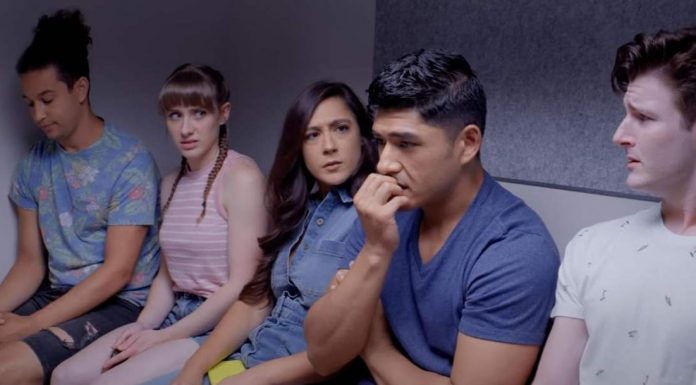“Always, Lola (2022),” a movie that skillfully combines comedy and tears while sending viewers on an emotional rollercoaster. This coming-of-age dramedy, which was written and directed by Jeffrey Crane Graham, made its world premiere on September 24 at the Boston Film Festival.
The plot concerns a close-knit group of college students who, following the untimely death of their friend Lola, get together for their yearly camping trip. The movie opens with the gang looking forward to Lola’s birthday camping trip, which is traditionally celebrated with a scavenger hunt that Lola plans for her pals. But then tragedy hits, cutting the friends apart and forcing them to deal with their own loss on a personal level. Graham’s analysis of each character’s individual experience of grief bears witness to his acutte comprehension of the intricacies of human feelings.
The story examines the intricacies of bereavement, the phases of recovery, and the enduring strength of friendship against the backdrop of their yearly camping trip. Leading a cast that embodies the essence of life’s beautiful, painful, and exciting moments, Roxy Striar excels in her debut leading role as Lola.
tvacute take a look behind the scenes as we examine the intentions of the filmmakers and the real-life problems “Always, Lola” addresses, as we dive into the story, get to know the subtleties of the characters, and investigate the concepts that make the movie so exceptional.
Is Always, Lola (2022) Movie Based on a True Story?
“Always, Lola (2022)” finds inspiration in real emotions and experiences, especially in the personal life of director Jeffrey Crane Graham. Graham has publicly acknowledged that the loss of his high school closest friend served as the inspiration for the script. It’s crucial to remember that, despite exploring issues of substance misuse, mental illness, and loss, the movie is not an accurate depiction of real-life events.
The story is a vehicle for starting vital discussions about mental health and the effects of bereavement on both individuals and communities. The film captures the essence of common human experiences and encourages viewers to consider their own journeys through loss and recovery by fusing true stories with fictional ones.
Producer Keven Undergaro and director Jeffrey Crane Graham set out on this filmmaking adventure with the intention of producing something more than just entertainment. The movie has already received praise; it was named Best Feature and Best Director at the Silicon Beach and Marina Rep Ray Film Festivals.
“I’ve never done [a film] like this that has meaning and such impact, and purpose,” says Undergaro, highlighting the film’s impact. He was drawn to the script’s ability to address mental health concerns and spread awareness, thus he felt obliged to contribute to the project.
Graham emphasizes how relevant the movie’s ideas are in conversations about it. The world is struggling to accept that a mental health crisis could be the next big health issue in the midst of a pandemic. By releasing “Always, Lola,” Graham hopes to de-stigmatize discussions about mental health and provide a forum for people in need of assistance.
Graham called the film’s creation a “bootstrap” effort since it was shot in its entirety in just 11 days. This not only demonstrates the commitment of the actors and crew, but it also gives prospective filmmakers motivation to begin producing significant material using the tools at their disposal.
Striar highlights the cast’s shared feeling of purpose as evidence of the movie’s influence. She underlines, “Everyone was there for the same purpose and everyone connected equally,” underscoring the power of the movie to unite people through their common loss and sorrowful experiences.
In summary, “Always, Lola (2022)” is a film that delves deeper into the human condition, tackling themes such as mental health, bereavement, and the significance of friendship with genuineness and empathy.







